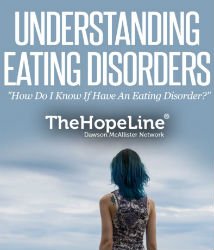Emotional and Social Consequences of Bulimia
Cognitive Consequences
- Focus on food and eating
- Loss of interest in other activities
- Distorted beliefs about food, eating, body shape and size
– Denial
– Minimisation
– Blaming
– Diversion
– Intellectualisation
– Dichotomous thinking
– Personalization
– Overgeneralisation
– Magical thinking
- Passing on unrealistic/distorted attitudes and beliefs about food to children
- Poor concentration
- Memory problems
- Difficulty in comprehending
- Difficulty making decisions
Emotional Consequences
- Depression
- Anxiety
- Irritability
- Shame
- Guilt
- Embarrassment
- Hopelessness
- Fear of being discovered
- Disgust
- Low Self-esteem
- Feeling out of control
Social Consequences
- Isolation
- Secrecy
- Interpersonal mistrust
- Decreased sexual interest
Financial Consequences
- Spending large amounts of money or buying binge foods and laxatives
Legal Consequences
- Getting caught shoplifting food, laxatives or other things
References
Bulik, C., Sullivan, P., Carter, F., Joyce, P., & McIntosh, V. (1993). Cognitive Therapy Therapist Manual for the treatment of Bulimia Nervosa. University of Canterbury, New Zealand.










Recent Comments